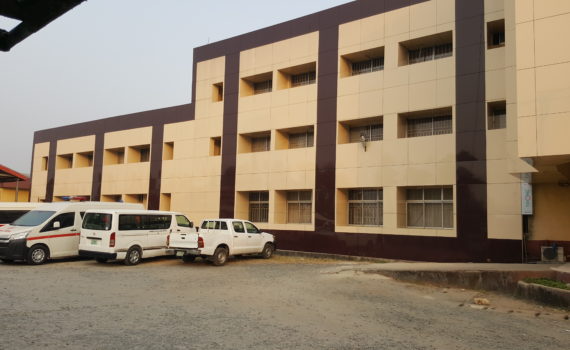The federal government recently made public its intention to turn schools into revenue yielding centres. This would have been permissible if, like in countries in Europe and America, the standard is high enough to attract foreign students who have to pay in foreign exchange.
This policy that is already causing outrage among stakeholders in the education sector, demands a mandatory 40 per cent remittance of internally generated revenues (IGRs) (read school fees) by Nigerian universities, polytechnics, colleges of education, and other educational institutions to the federal government.
Undeterred, the government announced that it would soon begin the implementation of automatic deduction from internally generated revenues of federal universities and other partially funded institutions.
Although, the federal government had hinted that it was granting universities the full autonomy to explore sources of financing their activities, no one in the education sector expected that the promised autonomy would come in this form. The government argued that the aim is to grant full autonomy to the universities as part of the government’s effort to create new means of funding tertiary education.
The policy of 40 percent auto-deduction of gross IGR is in line with the Finance Circular Reference Number FMFBNP/OTHERS/IGR/CRF/12/2021 dated 20 December 2021, limiting the annual budgetary expenditure from IGR of the partially funded federal government. But we feel that this policy is not only ill-conceived, it will further cripple the nation’s tertiary education system and create more hardship for both students and parents as well as other stakeholders.
The Nigerian tertiary education system has been facing numerous challenges for decades. These challenges include inadequate funding, poor infrastructure, and brain drain, among others. The introduction of the 40 per cent remittance policy will exacerbate these challenges and make it even more difficult for the institutions, especially the universities, to function effectively.
One of the main reasons why we consider this policy as ill-conceived is that it does not take into account the unique nature of each of these institutions. For instance, every university in Nigeria has its own peculiarities and challenges. Some universities are located in areas where there are few opportunities for generating revenue, while others are located in areas where there are plenty of opportunities. Therefore, it is unfair to expect all universities to remit the same percentage of their IGRs to the federal government.
Furthermore, the 40 per cent remittance policy may become counterproductive as institutions, hard- pressed to meet this target are likely to over-tax students. Or worse, commercialise their operations in a manner that could be injurious to healthy academic pursuit.
We are concerned that universities, aware that a sizeable percentage of their revenue may go elsewhere, will be less motivated to generate revenue.
The policy will, without doubt, create more hardship for students and their parents. Nigerian universities are already expensive, and the introduction of this policy will make it even more difficult for students and parents to afford the cost of education. The majority of Nigerian parents already struggle to pay for their children’s education this policy will only add to their burden.
In our view, the policy has the capacity to discourage private investment in the education sector for research. Investors will be less willing to invest in Nigerian universities if they know that the majority of their returns will be taken by the federal government. This will lead to a decline in the quality of education and services provided by the institutions.
It is for this reason that we commend the Colleges of Education Academic Staff Union for speaking up against the policy. It has, therefore, called on the government to exclude Colleges of Education from remitting 40 per cent of their IGR to the federal treasury as collections made by the Colleges are not revenues but charges meant to support specific services.
The policy will also complicate the already distraught system battling with brain drain and other ills plaguing the sector. Nigerian universities are already struggling to retain their best and brightest academics. The introduction of this policy will make it even more difficult for universities to retain their top talent.
The 40 per cent remittance policy, in our view, is a poorly conceived one that will further cripple Nigeria’s university system and create more hardship for both students and parents, and other stakeholders. The government should reconsider this policy and work with stakeholders in the education sector to find a more sustainable solution to the challenges facing the nation’s tertiary education sector. It is only by investing in education that Nigeria can hope to achieve sustainable development and economic growth.
But beyond this and, as a newspaper, we are beginning to be worried that the citizens are being blamed for the economic hardship in the country. It must be made clear that multiple taxation across all sectors is a disincentive to hard work. Nigerians are struggling to cope with the galloping standard of living index that has seen the prices of basic commodities, from yam, garri, rice, vegetables, petroleum motor spirit, diesel and gas spiraling out of control. Now the public schools that used to be the last hope of children of the poor, is about to go elitist. Can the nation afford its implications with the rise in crimes and criminalities among the youth?



